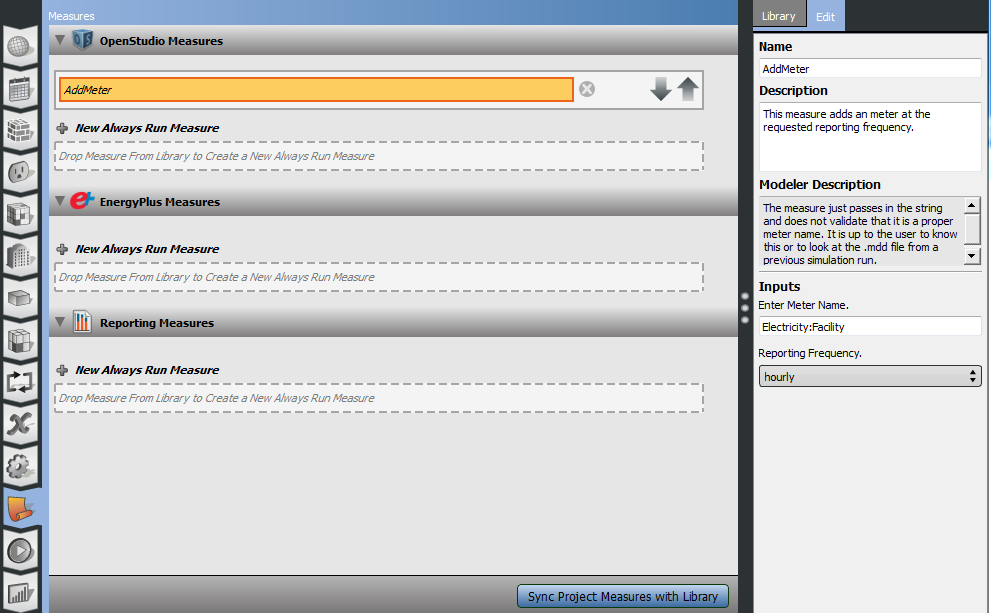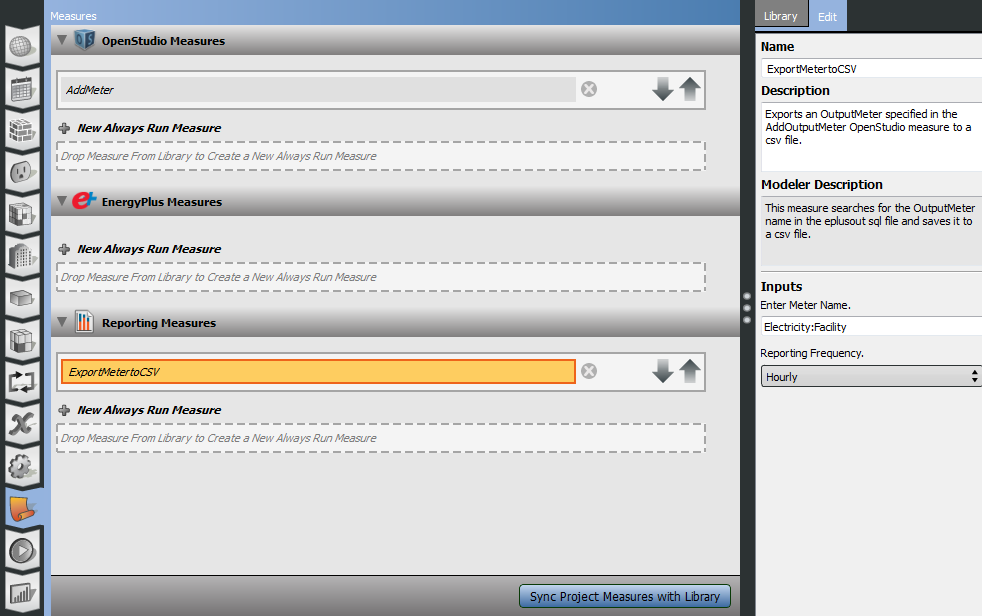 | 1 | initial version |
There may be faster ways to do this, but I made a measure to export hourly .csv data for meters and variables.
Add the AddMeter measure to your model:

Then add the ExportMetertoCSV measure:

Once you runt he model, a .csv file will be available in the run -> UserScript -> directory for that measure:

 | 2 | No.2 Revision |
There may be faster ways to do this, but I made a measure to export hourly .csv data for meters and variables.
Add the AddMeter measure to your model:

Then add the ExportMetertoCSV measure:

Once you runt he run the model, a .csv file will be available in the run -> UserScript -> directory for that measure:

 | 3 | No.3 Revision |
There may be faster ways to do this, but I made a measure to export hourly .csv data for meters and variables.
Add the AddMeter measure to your model:

Then add the ExportMetertoCSV measure:

Once you run the model, a .csv file will be available in the run -> UserScript -> directory for that measure:

EDIT: Other ways to do this: - Open the .eso file with DesignBuilder ResultsViewer. - I built a little python script to do this for VARIABLES (not METERS) if it's just a few variables and I don't want to bother with other things. You could easy adapt it to meters if you can tinker with code.
 | 4 | No.4 Revision |
There may be faster ways to do this, but I made a measure to export hourly .csv data for meters and variables.
Add the AddMeter measure to your model:

Then add the ExportMetertoCSV measure:

Once you run the model, a .csv file will be available in the run -> UserScript -> directory for that measure:

EDIT:
Other ways to do this: this:
 | 5 | No.5 Revision |
There may be faster ways to do this, but I made a measure to export hourly .csv data for meters and variables.
Add the AddMeter measure to your model:

Then add the ExportMetertoCSV measure:

Once you run the model, a .csv file will be available in the run -> UserScript -> directory for that measure:

EDIT: Other ways to do this:
Open the .eso file with DesignBuilder ResultsViewer.
I built a little python script to do this for VARIABLES (not METERS) if it's just a few variables and I don't want to bother with other things. You could easy adapt it to meters if you can tinker with code.
